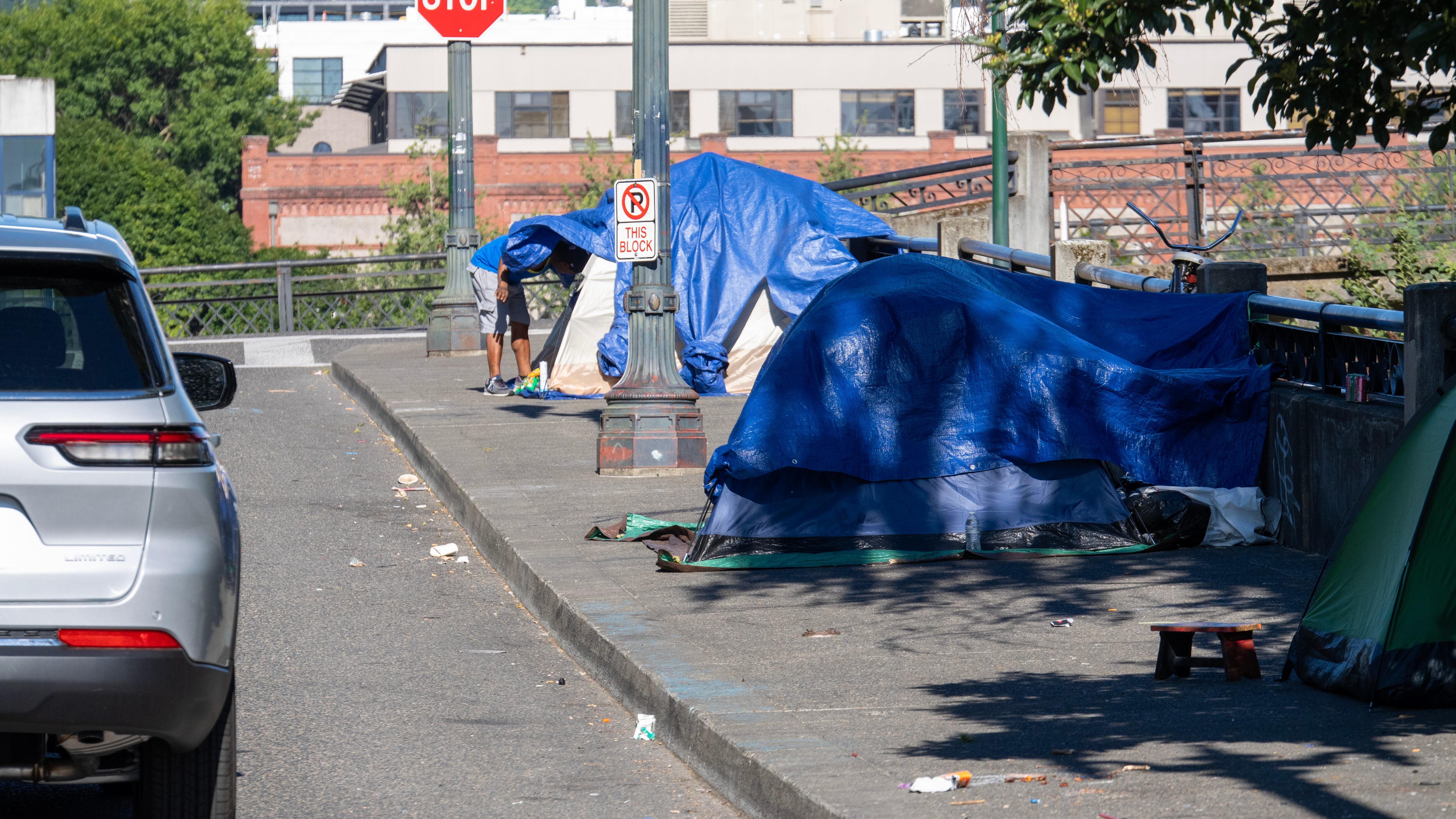HereTogether, the group representing homeless services providers in the region, notified Metro Council President Lynn Peterson on Nov. 13 it had reached an agreement with the Portland Metro Chamber, which represents 2,300 businesses, including most of the region’s leading employers.
For nearly a year, the two organizations and various interested parties have been discussing the future of the Metro supportive housing services tax, the 2020 measure that raised $335 million over the past year but is due to expire in 2030.
HereTogether’s members want the tax to continue, while the Portland Metro Chamber and its members want the current tax to be used more effectively and be less onerous for taxpayers in the future.
The key elements of the new deal, as expressed in a 10-page letter signed by HereTogether and various member organizations, along with the chamber, Oregon Business & Industry and some individual businesses, include provisions for greater regional cooperation between the counties, more focused and stringent oversight by an “independent watchdog,” the expansion of allowable expenditures to include “deeply affordable housing,” and, most notably, the two big changes each side wanted:
*Extending the existing measure by 20 years: “Extending the sunset to 2050 would provide the stability needed for long-term planning and allow for more strategic investments in housing development and service delivery,” the letter says.
*Indexing the personal income tax to inflation and lowering the rate over time: “We recommend adjusting the personal income tax threshold for inflation to ensure that the SHS tax remains focused on high-income earners,” the letter says. “This would prevent middle-class households from being inadvertently affected by the tax due to inflation rather than real income growth.” The personal income tax portion of SHS (it is also funded by a tax on corporate profits) would be lowered from 1% to 0.9% in 2026 and then to 0.75% in 2031.
“These recommendations for SHS reform are critical for the stability, efficacy, and continuity of this important stream of funding for our region and, most importantly, for the people it aims to serve,” the letter says. “We call on every member of the HereTogether coalition, every elected official, and every community stakeholder to participate in this process.”
The Metro Council, which administers the SHS tax, passing the revenue on to the three counties, approved a resolution in October that broadly outlines the changes it supports. The new letter fills in key details. Now, those parties and representatives of the three counties will sit down to see if they can all agree. That is not a given—the three metro-area counties have previously expressed opposition to changes that would reduce their autonomy and the revenue they might otherwise get.
There are also some members of the Here Together coalition who oppose the extension and tax cut. “Not all the organizations who are listed as members of Here Together are supportive of this so-called agreement,” Mercedes Elizalde, the director of advocacy for the Latino Network tells WW in an email. “Latino Network is listed as a member but we do not support reducing homeless services in favor of a tax cut.”
Metro will now host a series of four meetings aimed at winning over the counties and crafting a measure for voters to consider, most likely on the May 2025 ballot.
The next meeting is Thursday, Nov. 14, from 2 to 4 pm at Metro’s offices, 600 NE Grand Ave.
This post has been updated with a comment from the Latino Network.

